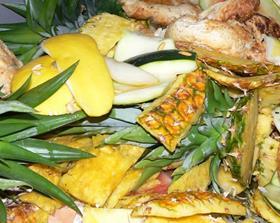
The Institution of Mechanical Engineers (IME) believes that 30-50 per cent of all the food produced in the world each year - between 1.2bn and 2bn tonnes - does not get consumed.
In its Global Food: Waste Not, Want Not report, the London-based organisation blames poor practices in harvesting, storage and transportation, as well as market and consumer wastage, for figures it has called 'staggering'.
With the global population set to reach 9.5bn by 2075, the IME calls for urgent action from governments, development agencies and others to change the mindsets of producers, retailers and consumers.
The document identifies tight sell-by dates, buy-one-get-one-free offers and Western demand for aesthetically pleasing food as specific drivers of food waste.
For fruit and vegetables in particular, the importance of visual characteristics is exaggerated and, for example, up to 30 per cent of the UK's vegetable crop is not harvested as a result.
Tim Fox, head of energy and environment at the IME, pointed out: 'It is also an unnecessary waste of the land, water and energy resources that were used in the production, processing and distribution of this food.'
Prof. Richard Tiffin, director of the University of Reading's Centre for Food Security, cautioned: 'It is important that we do not jump to the conclusion that this provides a ready-made solution to feeding the increased population that is expected.'
He suggested that waste reduction measures might create a different problem: 'Reducing food waste to acceptable levels may require storage and transport solutions that are themselves unsustainable.'
In the meantime, said Tiffin, 'Consideration should also be given to the economic conditions that give rise to food waste. The growth of urbanised populations in the global south will lead to longer supply chains of the sort that we see in the global north now.'
The full IME report is availablehere.



